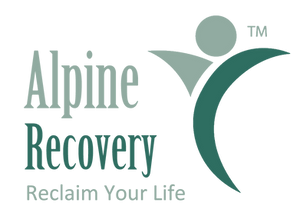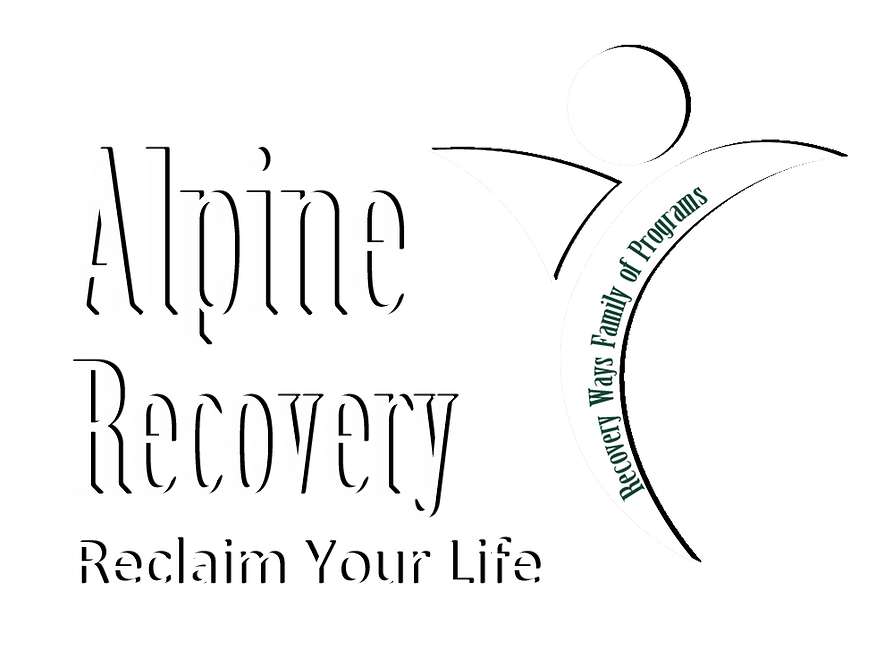Addiction Treatment Centers in Washington
Addiction is a significant challenge affecting countless individuals and families across the United States, and Washington is no exception. Over the past decade, the state has witnessed a steady rise in substance use disorders (SUDs) and other forms of addiction, fueled by various social, economic, and psychological factors. While the road to recovery can be long and challenging, seeking professional help is often the pivotal first step in regaining control and rebuilding a fulfilling life. This article will explore how addiction treatment centers in Washington play a vital role in helping individuals recover. From understanding the nature of addiction and available treatment options to choosing the right facility and maintaining long-term sobriety, we’ll provide you with the knowledge and insights to take that first, life-changing step.
What is Addiction?
Addiction is a chronic disease that disrupts the brain’s reward, motivation, and memory functions, often leading individuals to prioritize harmful behaviors over their well-being. Common types of addiction include:
- Substance Use Disorders: A complex condition characterized by the compulsive use of substances such as opioids, methamphetamines, or cocaine, despite harmful consequences. These addictions can lead to physical dependence, mental health challenges, and significant impacts on personal and professional life.
- Alcoholism: A chronic dependency on alcohol characterized by an inability to control drinking despite negative consequences. It often leads to serious health issues such as liver damage, heart problems, and mental health disorders, as well as significant social challenges like strained relationships and difficulties at work or school.
- Behavioral Addictions: Addictions that involve compulsive engagement in activities like gambling, gaming, or other behaviors that trigger a reward response in the brain. These behaviors can interfere with daily life and responsibilities, often leading to negative consequences such as financial issues, strained relationships, or reduced mental well-being.
The Science Behind Addiction
Addiction isn’t a matter of willpower; it’s a complex disease rooted in changes to the brain that affect behavior and decision-making. Prolonged substance use alters brain chemistry, specifically in areas linked to reward, motivation, and self-control. These changes make the brain prioritize the addictive substance or behavior over basic needs like food, relationships, or personal well-being. Over time, this rewiring reinforces a cycle of dependency that can feel impossible to break without help. The physical, emotional, and social impacts of addiction highlight why professional intervention, including therapy and medical support, is crucial for achieving and maintaining recovery.
The Role of Treatment Centers in Recovery
Addiction treatment centers in Washington are specialized facilities designed to provide comprehensive care for individuals struggling with addiction. Here’s how they help:
- Supportive Environments
Treatment centers provide a safe and structured environment where individuals can focus entirely on their recovery. These facilities are free from external triggers and enabling behaviors that may hinder progress, offering a supportive space designed to promote healing. With professional staff, tailored programs, and a community of peers, treatment centers create an atmosphere that fosters growth, accountability, and long-term success in overcoming challenges.
- Comprehensive Care Plans
Each person’s addiction is unique, and treatment centers work to assess individual needs in order to create personalized recovery plans tailored to their specific circumstances. These plans may involve a combination of therapy, such as cognitive behavioral therapy or group counseling, medication to manage withdrawal symptoms or underlying conditions, and lifestyle interventions aimed at building healthier habits and coping mechanisms. By addressing the physical, emotional, and social aspects of addiction, these comprehensive plans help individuals take meaningful steps toward lasting recovery.
- Expert Guidance
At these centers, experienced professionals—including therapists, medical staff, and counselors—provide personalized care and support to guide individuals through each step of the recovery process. They work together to address physical, emotional, and mental health needs, ensuring a comprehensive approach to healing and long-term well-being.
Inpatient vs. Outpatient Programs
- Inpatient Programs: These programs offer 24/7 care in a structured, residential setting, making them ideal for individuals with severe addictions or those whose home environments may hinder recovery. Patients have access to constant supervision, medical support, and a range of therapeutic services, including counseling, group therapy, and wellness activities. This immersive environment helps individuals focus entirely on their recovery without external distractions or triggers.
- Outpatient Programs: These programs allow individuals to receive professional care and support while continuing to manage their daily responsibilities, such as work, school, or family commitments. Outpatient programs typically involve scheduled sessions for therapy, counseling, or group support, making them a flexible option for those who cannot commit to full-time care. However, they require a high level of self-discipline and motivation, as individuals must manage their recovery while navigating the challenges of everyday life. These programs are ideal for those with a stable home environment and a strong support system.
Each program has its pros and cons, and the choice depends on the severity of the addiction and the person’s lifestyle.
Specialized Therapies
Washington treatment centers utilize a range of evidence-based therapies, including:
- Cognitive Behavioral Therapy (CBT): A widely used and evidence-based approach that helps individuals identify and change harmful thought patterns, behaviors, and emotional responses. By focusing on the connection between thoughts, feelings, and actions, CBT equips individuals with practical tools to manage challenges and improve mental well-being.
- Dialectical Behavior Therapy (DBT): A type of cognitive-behavioral therapy that focuses on teaching individuals skills for emotional regulation, distress tolerance, and improving interpersonal relationships. It provides coping mechanisms to manage intense emotions and navigate challenging situations more effectively.
- Eye Movement Desensitization and Reprocessing (EMDR): A therapeutic approach often used to address trauma-related addiction triggers by helping individuals process and reframe traumatic memories. Through guided eye movements, EMDR reduces the emotional intensity of these memories, making it easier to manage triggers and break the cycle of addiction.
- Group Therapy: Offers a supportive environment where individuals can connect with others facing similar challenges, fostering a sense of community and shared learning through open discussions and collective experiences.
- Family Therapy: Aims to repair and strengthen family relationships by improving communication, resolving conflicts, and fostering understanding among family members.

Personalized Treatment Plans
Personalization is key to success when it comes to treatment. Every individual’s journey is unique, and factors such as the type of addiction, co-occurring mental health conditions, personal history, and individual preferences play a crucial role in shaping effective treatment plans. By tailoring approaches to meet these unique needs, healthcare providers can offer more targeted support, improving the chances of long-term recovery and overall well-being.
Success Stories from Washington Treatment Centers
Real-life stories offer hope and motivation to those starting their recovery:
- Jessica, a 34-year-old from Seattle, battled opioid addiction for eight years. With the help of a Washington treatment center, she’s been sober for three years and now mentors others in recovery programs.
- David, a father of two from Spokane, credits a family therapy-focused outpatient program for helping him rebuild his life after alcohol dependency.
These testimonials are a testament to the power of professional care and support.
Navigating Challenges During Recovery
Recovery is not without challenges, but treatment centers equip individuals with tools to overcome them. Common obstacles include:
- Relapse Triggers: Stress or exposure to past environments can lead to setbacks. Treatment centers teach coping strategies and relapse prevention techniques.
- Mental Health Concerns: Co-occurring disorders such as anxiety or depression are addressed through dual-diagnosis programs.
- Stigma: Overcoming societal judgment is part of the healing process, and group therapy often provides a supportive space to work through these fears.
Continuing Care Programs
Recovery doesn’t end with treatment—it’s a lifelong journey that requires ongoing support. Washington centers provide continuing care programs designed to help individuals maintain their progress and build a fulfilling, substance-free life. These programs may include counseling, group therapy, and access to resources tailored to each person’s unique needs.
- Sober Living Homes: These are structured, supportive housing environments designed to help individuals transitioning out of rehab maintain their sobriety. They provide a safe, substance-free space with rules and routines that encourage accountability, personal growth, and reintegration into everyday life.
- Alumni Support Groups: Join a supportive community of individuals who have gone through similar recovery journeys. These groups provide a safe space to share experiences, offer encouragement, and stay connected as you navigate the ongoing recovery process together.
Lifestyle Changes and Community Support
Adopting healthy habits, such as regular exercise, mindfulness practices like meditation, and maintaining nutritionally balanced diets, can significantly enhance long-term sobriety by improving both physical and mental well-being. Exercise helps release endorphins, reducing stress and boosting mood, while meditation fosters emotional regulation and self-awareness. A balanced diet provides the body with essential nutrients to aid recovery and maintain energy levels. Additionally, community resources, such as local support groups or 12-step programs, play a crucial role by fostering accountability, offering encouragement, and creating a sense of belonging throughout the recovery journey.
Choosing the Right Treatment Center for You
Factors to Consider
Choosing the right addiction treatment center is a critical decision. Here’s what to look for:
- Location: Choosing a facility close to home can be convenient for outpatient programs, allowing easy access to treatment while maintaining daily routines. For inpatient care, a remote setting may provide a more focused and distraction-free environment, ideal for intensive recovery.
- Treatments Offered: Look for a facility that provides a range of evidence-based therapies tailored to your specific needs and circumstances. This may include individual counseling, group therapy, or specialized programs designed to address unique challenges you may be facing.
- Staff Credentials: Ensure that the center employs highly qualified professionals, such as licensed therapists, counselors, and medical staff, who specialize in addiction treatment and have experience in providing personalized care to meet diverse patient needs.
Questions to Ask
Before committing to a center, ask these questions:
- What addiction therapies do you offer?
- Do you provide dual-diagnosis treatment for mental health disorders?
- What’s your approach to relapse prevention?
Insurance Coverage
Most addiction treatment centers in Washington accept a range of insurance plans, making it easier for individuals to access the care they need. Commonly accepted insurance providers include private health plans, Medicaid, and Medicare. It’s important to check with both the treatment center and your insurance provider to confirm whether your plan covers the specific treatments you require, such as inpatient programs, outpatient therapy, or medication-assisted treatment. This can help you better plan for your recovery journey.
Alternative Financing Options
For those without comprehensive insurance, many healthcare facilities offer a range of options to make medical services more affordable and accessible. These options often include flexible payment plans, which allow patients to break down the cost of treatments into smaller, more manageable installments over time. Additionally, sliding scale fees are commonly available, adjusting the cost of care based on your income level to ensure affordability for low-income individuals and families. Some facilities also provide financial aid programs or charity care, specifically designed to reduce the financial burden on patients while ensuring they can access the necessary treatments and services they need without delay. These programs aim to bridge the gap and ensure that essential healthcare remains within reach for everyone, regardless of their financial situation.
Conclusion
Addiction is an uphill battle, but it’s one you don’t have to fight alone. Addiction treatment centers in Washington offer professional care, compassionate support, and the resources needed to help individuals recover and thrive. These centers provide a range of evidence-based treatments, including therapy, counseling, detox programs, and aftercare planning, all tailored to meet unique needs. Whether you’re seeking help for yourself or a loved one, taking that first step towards recovery is a courageous decision that can lead to a healthier, happier future. With the guidance of trained professionals and a supportive community, you can rebuild your life and regain control. If you’re ready to start your recovery journey, reach out to us today by calling 1 (360) 658-1388 or clicking Alpine Recovery. A brighter tomorrow begins with the choices you make today.



